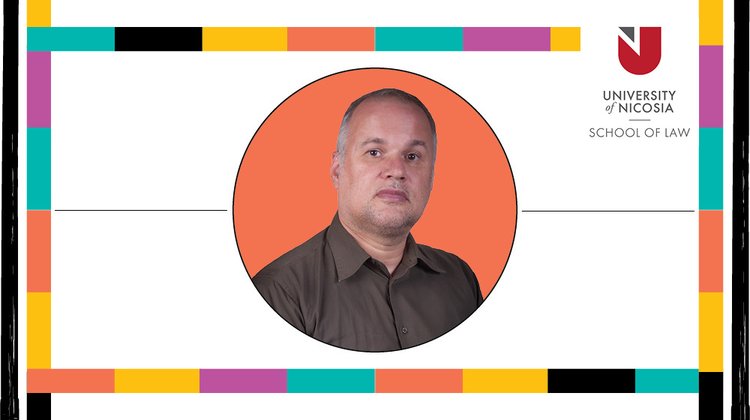How UNIC School of Law gives students a competitive edge
06:59 - 31 August 2023

With more than 25 years of experience in the provision of top-tier legal education, the University of Nicosia School of Law can be credited with a number of firsts in the region, including the awarding of the first Law degrees in Cyprus.
Dr Christos Papastylianos, Head of its Department of Law, introduces the School and outlines its key competitive advantages.
First, we’d like you to introduce us to the University of Nicosia’s School of Law.
The School of Law of the University of Nicosia (UNIC) houses two departments – the Department of Law and the Department of Politics and Governance – and is one of the most active in the region. The School offers a series of innovative courses and legal programmes that facilitate access to the legal profession internationally and are designed to help students gain a competitive edge in a prestigious selection of professional careers, as advocates, judges, legal consultants, in-house counsel, managers of private and multinational corporations and public officials, amidst the multitude of career paths that a Law degree provides.
What differentiates the University of Nicosia School of Law from other Schools of its kind?
The School aims at providing a distinctive academic environment where its dynamic and growing faculty impart their extensive knowledge and academic skills in all areas of legal education and research, as well as politics and governance. Faculty are actively engaged in high-quality teaching, cutting-edge research and extracurricular activities, having achieved international recognition through these, as well as through membership of the European Academy of Sciences and Arts, management roles in numerous European and national bodies in relevant fields, and leadership of large-scale research projects at international, regional and national level. One of the main things that differentiates the UNIC School of Law is the fact that 95.7% of its graduates are employed within 18 months of completing their degree. I find this to be indicative not only of the sector’s employability prospects but, most importantly, of the University’s success in preparing its graduates for a quick and smooth transition to the reality of the industry. I should also note that the School is part of a dynamic and fast-developing university, which ranks among the top 501-600 universities in the world and 157th in the European Union. The results of the 2023 edition of the Times Higher Education (THE) World University Rankings constitute a strong endorsement of the high quality and international reputation of our University, and, by extension, our School.
How are all these reflected in the programmes offered by the School and its Department of Law?
Indicative of the School’s competitive advantage is the fact that the Department of Law awarded the first Law degrees to be recognised by the Republic and the Legal Council – Cyprus. Our degrees have gained international accreditation by Quality Assurance agencies in the UK, Greece, Canada, and other Commonwealth states. We are also members of top academic international consortia such as the European Law Faculties Association. Our undergraduate law programme is offered in a unique configuration of separate common law, continental law and mixed law perspectives that cater to the needs of international, Greek and Cypriot audiences respectively. Our courses are offered in English and Greek and they are delivered both conventionally (in the classroom) and through an innovative distance learning system that facilitates global outreach. The same applies to our Master of Laws programme which, additionally, offers specialisations in European Business Law and Human Rights and Social Justice.
Aren’t certain programmes also offered in collaboration with the Law Schools of other universities?
Yes. The UNIC School of Law has been collaborating with Greek Law Schools and other Greek academic institutions for several years through joint postgraduate programmes. Two outcomes of this collaboration are the Joint Master’s Degree with the Hellenic Open University on “Law of the Economy and of Enterprises” and the joint Master’s Degree with the Law School of the Aristotle University of Thessaloniki on “Criminal Law and Addictions”. Our goal is to expand collaboration with other universities in Greece and abroad and to create synergies that allow us to take the quality of education offered to the next level.
The fluidity of the international and economic environment poses challenges for legal scholars. How is the UNIC School of Law facilitating its students to overcome these challenges?
The School of Law, and specifically the Department of Law, constantly adapts its study programmes to successfully address the new challenges posed by rapid developments in the field of legal science. These adaptations include additions to the undergraduate programmes, such as courses on new dispute resolution methods, continuous updates to the content of courses, such as Family Law, and the establishment of new postgraduate programmes focusing on topical issues.
What else can we expect from the UNIC School of Law in the coming years?
The School aims, among others, to further develop its programmes, including the introduction of a new postgraduate programme on the relationship between Law and Technology. It will be offered with specialisations in (a) European Business Law and (b) Human Rights and Social Justice and will be taught in English through distance learning.
This interview first appeared in the August edition of GOLD magazine. Click here to view it.

